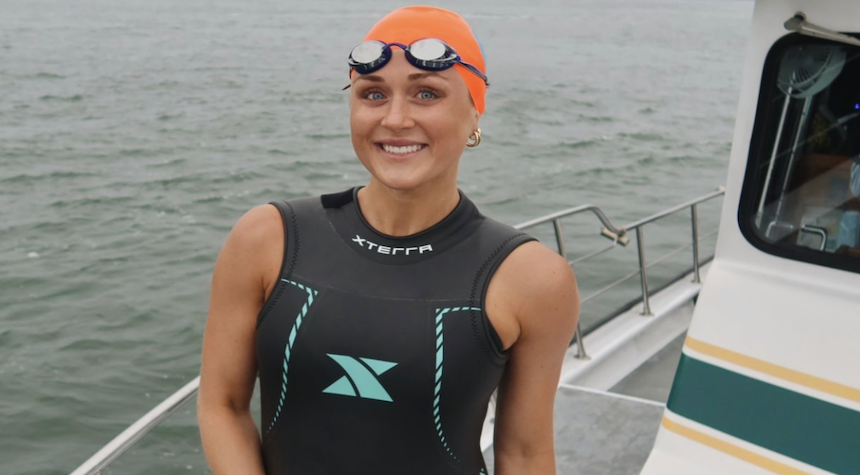Reports from San Francisco indicate that Riley Gaines, a prominent athlete and advocate, has completed a 1.25-mile swim from Alcatraz to the shore while 31 weeks pregnant. This event has ignited a heated discussion about the safety and appropriateness of such physical feats during pregnancy.
Gaines, who undertook the swim alongside U.S. Navy SEALs and combat veterans, including her husband, states she received clearance from her obstetrician before the event. The swim, reminiscent of her participation in the same event last year, has drawn both praise and criticism from various quarters.
Alcatraz, the former federal penitentiary located in San Francisco Bay, has long been associated with daring escape attempts and challenging swims. The waters are known for their cold temperatures and strong currents, factors that have historically deterred many from attempting the crossing.

This event has raised questions about the limits of physical activity during pregnancy. Medical experts generally encourage exercise during pregnancy but emphasize the importance of individual assessment and professional guidance.
Critics express concern over potential risks to the fetus, while supporters, including Gaines herself, argue for the benefits of maintaining physical fitness throughout pregnancy when deemed safe by medical professionals.

This highlights ongoing debates about women’s autonomy, medical expertise, and public perceptions of pregnancy. Gaines, who hosts a podcast discussing transgender participation in women’s sports, finds herself at the center of yet another contentious issue in athletics and gender politics.
As this story continues to unfold, it becomes clear that it touches on broader societal discussions about pregnancy, athletic performance, and personal autonomy. The public reaction highlights the complex intersection of health, sports, and individual rights in our society.


